
Use these tips from Dr. James Guenther to make sure you're measuring up in your equine practice.

Use these tips from Dr. James Guenther to make sure you're measuring up in your equine practice.

When the going gets tough, the tough equine practitioners get … marketing.

Create a plan, be persistent, and measure success. Give your marketing efforts time to grow and produce new or more knowledgeable clients.
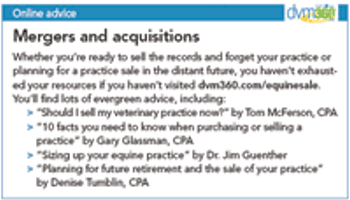
Medical records are worth more than the paper they're printed on. When it's too hard to sell your equine practice outright, consider selling your best asset-your clients.

If low cash flow is hobbling your equine veterinary practice, outdated policies may be to blame. Here are six steps to collecting money you've earned on old invoices.

Q. The inventory for our practice's equine work seems out of control and the payables are piling up. How do I manage inventory without losing money?

Statistics show that at least 61 percent of your clients are using social networks. Are you? Find out how Facebook and Twitter can help your practice's profits soar.
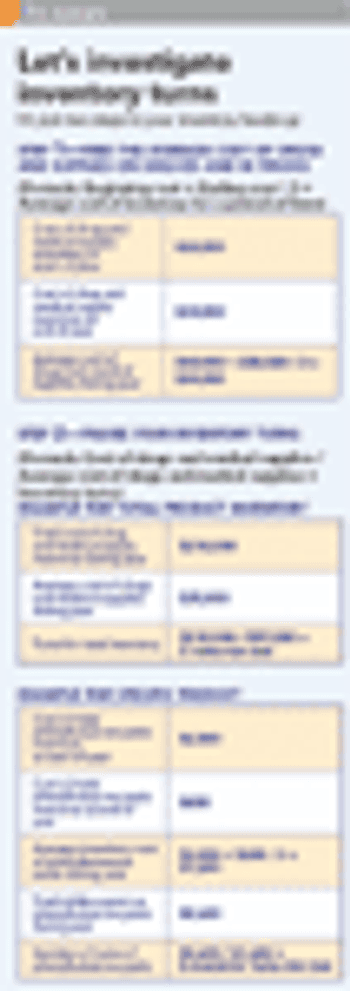
Your equine practice cash flow is weak and your stress is high. Turn your fever of anxiety into a plan to rejuvenate your inventory and heal your financial woes.

An economic downturn is not the time to cut back on marketing. Rather, it's an opportunity to grow your veterinary practice's brand and prepare for greater financial success once the market recovers.
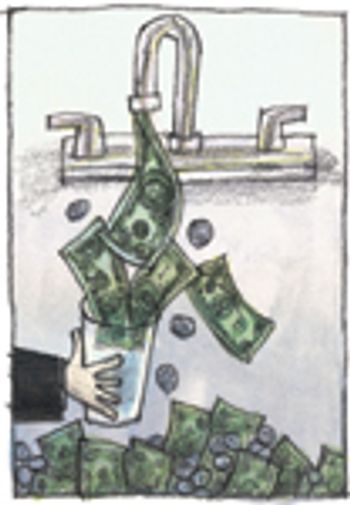
The excess earnings concept, Excess Earning and Single Period Capitalization Methodologies, is a widely used tool to assess the value of an equine practice.
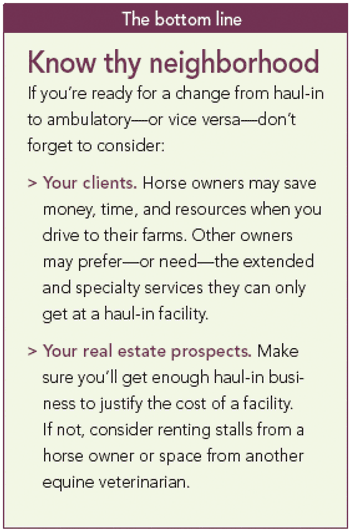
Consider two crucial factors when you're deciding between an ambulatory or stationary equine practice.

Giving new associates a chance to develop positive relationships with clients and team members builds loyalty-and revenue.

Want to be a successful equine practice owner and still have a life? Start by communicating assertively and laying old stereotypes to rest.

Rethink your stance on marketing and consider what it's really about: providing valuable information to a client so he or she can make an informed decision about purchasing a product or service.

You probably got ethics training in school, but that's very different from the experience you get in practice, when you're actually facing the tough questions. You want to do what's right for the horse. You need to know the law, so you don't put your practice at risk. You sure don't want to pay fines or put your license on the line. How can you keep it all on the straight and narrow? Consider this article your refresher. Let's get ethical.

Things to think about when dealing with contract and health certificates.

Why are so many equine practitioners having trouble selling their practices? Don't let it be you.

You can balance a career with a personal life-but you've got to embrace change. Here's the one thing you need to know about having it all.

What should I look for in an accountant?
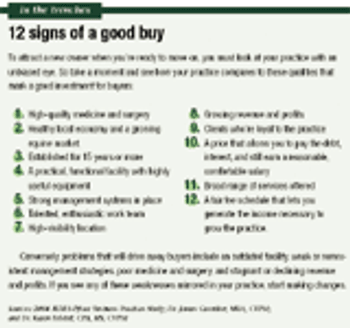
Use high-quality medicine, strong communication skills, and both internal and external marketing to create clients who act as advocates for the practice.
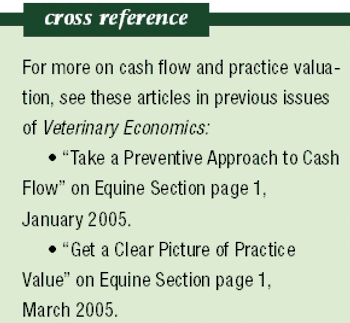
The day you become an owner is the day you should start planning to sell. Here's why-and a look at what to consider.

Published: November 13th 2012 | Updated:

Published: September 4th 2012 | Updated:
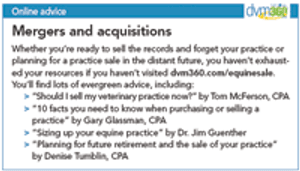
Published: March 1st 2012 | Updated:

Published: October 1st 2011 | Updated:

Published: June 1st 2007 | Updated: